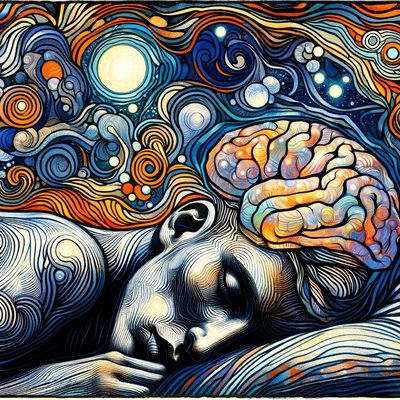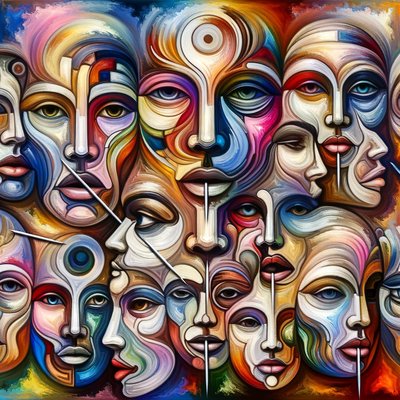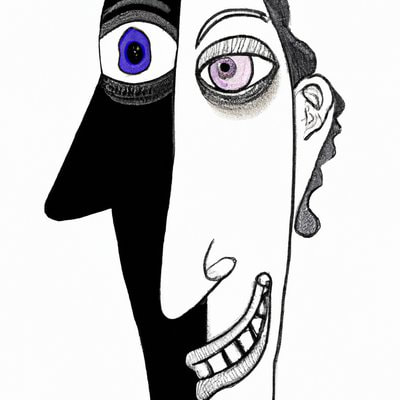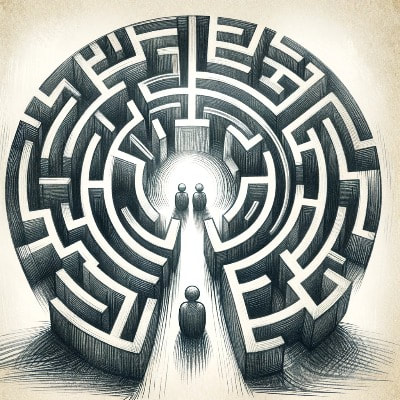|
This blog post was reviewed and approved for publication by Anjuli M. Shah D.O., a Board-certified psychiatrist at Apraku Psychiatry.
We’ve all seen them as we scroll through our TikToks and Instagram feeds — the sun-kissed celebrities and super-sculpted fitness influencers. With social media awash with seemingly ‘flawless’ bodies and exaggerated features, it can be challenging not to compare ourselves to these idealized standards.
The impacts of such constant exposure and comparison can be varied, ranging from lowered self-esteem to body dysmorphia, a mental health disorder characterized by an obsessive focus on perceived flaws in appearance. While social media is not the sole cause of body dysmorphia, research suggests it can contribute substantially to the condition. It’s crucial to remember, though, that not everyone who uses social media develops body dysmorphia. Individual psychological factors, genetics, and environmental influences also play a significant role. In this article, we’ll guide you through the influence of social media on body image perception, what BDD is and how it manifests, and strategies to help your mind and body while consuming social media in the future. Social Media and the Culture of ComparisonSocial media has become a dominant force in our lives, shaping how we communicate, interact, and perceive both ourselves and others. For many, social media platforms are an integral part of daily life, a place for connection, entertainment, and information. However, these platforms also present an often unattainable standard of beauty and physical perfection. Users are inundated with flawless images, artificially enhanced by filters and photo editing tools. In this context, it's easy to fall into the trap of constant comparison, analyzing how your own appearance stacks up against those seen in perfectly curated feeds by influencers whose full-time job is often maintaining the ‘ideal’ image. The comparison is almost never favorable, leading to feelings of inadequacy and a skewed perception of reality. Research has shown that frequent use of social media is associated with higher levels of body dissatisfaction, negative mood, and eating disorder symptoms. Adding to this is the issue of cyberbullying and body shaming. Many people, particularly young individuals, encounter derogatory comments about their appearance on social media, which can damage their self-esteem and body image. The consequences can be even more pronounced for individuals with Body Dysmorphic Disorder. Top Highlights
Understanding Body Dysmorphic DisorderSocial media can fuel obsessive concerns over perceived flaws, leading to an intensification of Body Dysmorphic Disorder symptoms. Also known as dysmorphophobia, BDD is a mental health disorder in which a person becomes extremely preoccupied with what they perceive as flaws in their physical appearance. These perceived imperfections may be minor or even unobservable to others, yet to the person with BDD, they are highly prominent and cause significant distress. BDD is more than just a lack of self-esteem or dissatisfaction with one’s looks. It’s an obsessive-compulsive spectrum disorder, meaning it involves recurrent, distressing thoughts and repetitive behaviors. Individuals with BDD may spend hours each day worrying about their appearance, examining themselves in mirrors, seeking reassurance from others, or attempting to camouflage or fix their perceived flaws. According to the American Psychiatric Association, BDD affects up to 2.4% of the population, both men and women, and often starts in adolescence, a time when individuals are most susceptible to societal and peer pressure about their appearances. This disorder can severely affect your daily life, causing social isolation and difficulties at work or school, and it often co-occurs with other mental health disorders such as depression and anxiety. Navigating Social Media MindfullyAs social media continues to play a significant role in our daily lives, learning to navigate these platforms mindfully can be a powerful tool in mitigating the potential harms. Here are some strategies for mindful social media consumption: Curate Your FeedYou have control over the content you consume. If certain accounts or types of posts make you feel insecure or unhappy, unfollow them or limit their appearance in your feed. Replace them with body-positive accounts, those promoting self-love, and accounts aligned with your interests and hobbies. Limit Your Screen TimeSetting specific time limits for social media usage can help reduce constant exposure to potentially harmful content. Most smartphones and digital devices have features that allow you to track and limit your screen time. Practice Digital DetoxesDesignate specific days or periods during the day as social media-free time. Use this time to engage in activities that you enjoy and that promote your well-being, such as reading, exercising, or spending time with loved ones. Don’t CompareSocial media is a highlight reel where people often showcase their best moments or achievements. Comparing your daily life to these highlights can lead to dissatisfaction and unhappiness. Try to appreciate your journey and your unique attributes. Seek SupportIf social media is causing distress or contributing to body dysmorphia, consider seeking help from mental health professionals. They can provide you with strategies and treatments to help manage these feelings and promote self-acceptance. In the age of digital media, it's essential to remember that your self-worth isn’t defined by what you see on social media. By being mindful of how you interact with these platforms, you can foster a more positive relationship with your body image and overall self-esteem. Conclusion: Seeing Through the Social Media MirageWhile social media platforms can be sources of connection, they can also serve as catalysts for body image dissatisfaction and contribute to conditions like Body Dysmorphic Disorder. It’s vital, though, to understand that the effects vary widely among individuals, and many other factors play substantial roles. Protecting your mental health in the digital age doesn’t have to mean completely disconnecting. Instead, it involves adopting a mindful approach to your online activities. Avoid falling into the comparison trap: your journey is unique, so embrace your individual attributes rather than comparing them with often unrealistic portrayals online. If you are experiencing distress or concern over potential BDD symptoms, don’t hesitate to reach out for help. Mental health professionals can provide valuable strategies and treatments to help you navigate these feelings and foster self-acceptance. This blog post is brought to you by Apraku Psychiatry. Apraku Psychiatry is a private practice offering video appointments with Board-certified psychiatrists licensed in multiple states. More blog articles can be found here. To schedule an appointment with one of our psychiatrists, patients can complete the online booking form. This blog post was reviewed and approved for publication by Anne Phan-Huy M.D., a Board-certified psychiatrist at Apraku Psychiatry.
Let's say you're on a quest for the perfect pair of shoes. You walk into the store, already envisioning that comfortable, stylish fit that will effortlessly carry you through your days. Now, what if the salesperson just tossed you a random pair without asking about your size, your style preferences, or what you'll be doing in those shoes — running a marathon, navigating a boardroom, or hitting the dance floor? Most likely, you'd end up with something that pinches, or slips, or simply doesn't support you the way you need.
It's the same with therapy. You've recognized that you're struggling, and you're ready for change. But just like shoes, therapy isn't one-size-fits-all. Your unique needs, circumstances, and the specifics of what you're going through all play a role in finding the therapeutic approach that's going to help you the most. In this blog post, we'll delve into the diverse world of therapies. You'll learn about several types of therapeutic approaches and discover which ones are most effective for specific mental disorders. Our goal is to guide you — whether you're someone who’s already receiving support or are considering taking that step — to make an informed decision about which therapy modality might be the right fit for you. This blog post was reviewed and approved for publication by Anne Phan-Huy M.D., a Board-certified psychiatrist at Apraku Psychiatry.
There’s a unique kind of frustration that accompanies a restless night. Despite your best attempts to drift off, you find yourself awake, tracking each passing minute with growing annoyance. However, for some, this struggle is more than an occasional inconvenience; it’s a regular battle with sleep.
If you belong to this group, you might be quick to blame insomnia for your sleep troubles. But there’s another potential villain in your sleep story: poor sleep hygiene. In this article, we aim to differentiate between insomnia, a sleep disorder marked by persistent difficulties in initiating or maintaining sleep, and poor sleep hygiene, which refers to inadequate sleep habits and practices. Understanding these differences can help you identify the real culprit behind your sleep problems, enabling you to adopt effective solutions. Let’s venture into the depths of this sleep conundrum together. This blog post was reviewed and approved for publication by Anne Phan-Huy M.D., a Board-certified psychiatrist at Apraku Psychiatry.
Remember Dorothy from “The Wizard of Oz”? Thrust into a bewildering new world with munchkins, witches and flying monkeys, her trusty dog Toto provides not just companionship but emotional grounding. Amidst the chaos of a land filled with both wonders and terrors, Toto offers a consistent source of comfort when everything else is uncertain.
While not everyone finds themselves in a fairy tale scenario, many of us go through real-life situations that are emotionally taxing. And Dorothy is far from the only animal lover to discover that when the going gets tough, furry friends can be invaluable sources of support. That’s why, back in the real world in the 21st century, some people turn to Emotional Support Animals (ESAs) for an added layer of psychological well-being. However, ESAs aren’t a universal solution, nor are they necessarily simply the same as pets. Curious about whether an ESA could be a good fit for you or someone you love? Stick around, because we’re diving into the details of what ESAs can do, why they may help you and how to go about getting one the right way. So let's follow that yellow brick road, with Toto in tow! This blog post was reviewed and approved for publication by Anne Phan-Huy M.D., a Board-certified psychiatrist at Apraku Psychiatry.
Remember the iconic scene in Rain Man where Raymond Babbitt counts toothpicks in a split second, astonishing the character played by Tom Cruise? While this moment brilliantly showcases Dustin Hoffman’s acting, it also helped to etch a stereotype into the public consciousness: that Autism Spectrum Disorder (ASD) implies extraordinary ability.
Rain Man has been pivotal in introducing the concept of ASD to a wider audience, yet it has also contributed to a skewed understanding of what it means to have an autistic spectrum disorder. In this article, we will move beyond Hollywood archetypes to explore the nuanced, multi-dimensional nature of ASD. We’ll tackle not only the spectrum itself but also the stigmas and stereotypes that often accompany a diagnosis. Ready to break free from the reel and get real? Let's go! This blog post was reviewed and approved for publication by Anne Phan-Huy M.D., a Board-certified psychiatrist at Apraku Psychiatry.
Every college student knows the feeling: the clock strikes midnight, and you’re in the middle of a study marathon for an exam you have first thing in the morning. It’s a familiar scene, your dorm room littered with coffee cups, textbooks, and scattered notes. Your mind feels like a tangled web of deadlines, relationships, and the pressing need to make crucial decisions about your future. Welcome to the life of a typical college student!
College years are an exhilarating whirlwind of opportunities, challenges, and change. Yet, amid the academic pressures and evolving personal lives, one critical aspect often gets sidelined — mental health. Many college students wrestle with issues such as anxiety, depression, or stress, but do not seek the help. If this sounds familiar, you are not alone, and it is important to know that help is available. In this article, we explore the unique mental health challenges faced by college students, how to recognize them, and the resources available. Let’s navigate this often overlooked part of college life together, helping you achieve not only academic success but also a healthier, balanced lifestyle.
Dr. Morgan Alexander exudes genuine warmth from the moment she pops up on your screen. Instantly chatty and engaging, her remarkable ability to connect with patients enables her to engage in a way that transcends the conventional doctor-patient relationship — and to understand people beyond mere diagnoses.
“I look back on so many of my experiences and realize that it was usually my curiosity driving them,” she says. “I just needed to see and understand the human behind some of these labels that get talked about so much in popular culture.” This natural disposition is at the heart of her professional practice, with Dr. Alexander enthusiastically championing a philosophy that prioritizes psychotherapy and lifestyle changes as pivotal to mental health. “I think medication is important,” she acknowledges, emphasizing its crucial role in psychiatric treatment to help treat issues from a biological perspective. “But if someone’s experiences during their personal development are the crux of the issue, then medication can never penetrate that. I've seen a lot of providers throw medication after medication at patients, trying to get there, and I can’t help but think: That's not the issue though — that's not addressing the cause of the problem.” This blog post was reviewed and approved for publication by Abena Apraku M.D., a Board-certified psychiatrist at Apraku Psychiatry.
Have you ever wondered if you're truly getting the most out of your psychiatric care? Are you feeling stuck, unheard, or disconnected in your current therapeutic relationship? It's a question many hesitate to ask, but the answer could be pivotal to your mental health journey.
In this article, discover the five critical reasons that may suggest it is time to consider a change in your psychiatric care. Your mental well-being may depend on it, so read on! This blog post was reviewed and approved for publication by Abena Apraku M.D., a Board-certified psychiatrist at Apraku Psychiatry.
Are you tired of being told not to worry when you’re feeling down? That you should look on the bright side, and that things aren’t as bad as they seem? While these clichéd consolations may be said with good intentions, they can often be counterproductive. Welcome to the hidden world of toxic positivity, where good vibes take a dark turn.
In this eye-opening article, we'll get to grips with toxic positivity and its effects on mental health. Join us as we navigate the fine line between healthy optimism and emotional invalidation, and discover how to foster genuine positivity that respects and supports emotional well-being. This blog post was reviewed and approved for publication by Abena Apraku M.D., a Board-certified psychiatrist at Apraku Psychiatry.
Sex can be wonderful - but things don't always go to plan. One potential obstacle to sexual wellness can be psychiatric medications. While such medications have the power to be life-changing, they can also carry side effects, including sexual ones. Managing these side effects is crucial to effective treatment, and the first step is to have a conversation with a psychiatrist.
This blog post was reviewed and approved for publication by Abena Apraku M.D., a Board-certified psychiatrist at Apraku Psychiatry.
The world is heavy! Just ask Atlas, the titan from Greek mythology tasked with carrying the globe on his broad shoulders. Today, with 24/7 global news, many of us have unwittingly turned into modern-day Atlases, with the emotional weight of many crises on our less-than-godly shoulders.
But there's a twist. Unlike Atlas, we actually choose to shoulder this weight. We subscribe to the push notifications, we scroll through the headlines, we dive into the comment sections. This self-imposed load can be a risky business for our mental health. So how can we lighten our burden without losing our connection to the world? Let's delve into the complexities of media overload. This blog post was reviewed and approved for publication by Chenhang Zou M.D., a Board-certified psychiatrist at Apraku Psychiatry.
You've been feeling off for a while now. Your mood swings are more intense than usual, you're constantly fatigued, and you can't seem to focus. Social media and self-help articles tell you that self-care is the answer. So, you run a bubble bath, complete with lavender bath salts and soothing music, hoping it will wash away your worries and emotional heaviness.
As you soak, you find your mind wandering to the problems that made you stressed in the first place. The bath ends, but the mental fog and emotional turmoil do not. It's a disheartening experience. You followed the popular advice to indulge in self-care, yet here you are, feeling just as troubled, or even more so for lack of relief. You might be wondering, "Why didn't this work? Isn't self-care supposed to help me feel better?" In this article, we’ll delve into why bubble baths, scented candles, and other quick fixes often miss the mark for people dealing with serious emotional and mental struggles. We’ll explore what true self-care entails and how to pair it with other wellness strategies to achieve a more lasting sense of well-being. This blog post was reviewed and approved for publication by Chenhang Zou M.D., a Board-certified psychiatrist at Apraku Psychiatry.
You're with your psychiatrist, discussing your thoughts, fears and experiences. Suddenly, you notice them scribbling away, and a wave of vulnerability washes over you. What are they writing? Could it be a judgment or analysis to which you’re not privy? These moments can evoke a mix of curiosity and uncertainty, leaving you to wonder about the content of those clinical notes.
The goal of this article is to unravel the mystery behind your psychiatrist's notes. We aim to put your mind at ease by breaking down the essential elements typically found in these clinical records. Understanding the ‘what’ and ‘why’ behind these notes can help demystify the process, creating a more transparent and trusting therapeutic relationship. In a field that relies heavily on patient history and evolving context, these notes are a pivotal aspect of effective psychiatric treatment. This blog post was reviewed and approved for publication by Chenhang Zou M.D., a Board-certified psychiatrist at Apraku Psychiatry.
Imagine you’ve just planted a seed in your garden, anticipating the growth of a beautiful flower or perhaps a fruit-bearing tree. You can almost see the vibrant colors or taste the delicious produce it promises. But what if, after planting the seed, you don’t water it consistently, ignore the weeds that spring up, and fail to give it the nutrients it needs? The seed won’t have the opportunity to flourish.
Similarly, starting psychiatric treatment is akin to planting that hopeful seed for a better, healthier mental state. However, for the ‘seed’ of treatment to truly sprout and thrive, it requires ongoing care and attention from your end. This includes adhering to medication schedules, engaging in therapy, and implementing lifestyle changes as advised. Following a treatment plan is not just a checkbox to tick off. It’s a sustained effort that encompasses investment, commitment and consistency. Failing to adhere to your treatment plan not only hampers your progress but could also worsen your symptoms, setting back your journey to recovery. Here, we’ll explore the significance of sticking with your treatment plan and provide actionable tips to help you get the most benefit from your psychiatric care. This blog post was reviewed and approved for publication by Abena Apraku M.D., a Board-certified psychiatrist at Apraku Psychiatry.
Are you ready for the ultimate guide to the most important question: how to live a fulfilled life? Dive headfirst into this positive, life-affirming space, a realm where four pillars — body, mind, social interactions, and global consciousness — converge to form the ultimate lifestyle symphony.
Unearth the power of each mindful meal, each rejuvenating rest, and every mindful movement as they work together to invigorate bodily vitality. Explore the art of self-care and introspection, and nurture relationships to experience the profound influence of a supportive social network. Embrace the awe-inspiring grandeur of our world with an adventurous spirit and a sense of global unity. This is your map to a fully integrated, enriched, and meaningful life. It is no less than an “Ode to Life” - a positive odyssey through love, growth, adventure, and purpose. This blog post was reviewed and approved for publication by Chenhang Zou M.D., a Board-certified psychiatrist at Apraku Psychiatry.
Imagine sitting down with a psychiatrist, searching for relief from your stress or anxiety. You're hanging on to every word, but then the doctor says, “You seem to be experiencing anhedonia with elements of dysthymia.” Suddenly, you’re left bewildered, feeling like you’ve entered a foreign land with someone speaking to you in High Valyrian!
The situation isn’t uncommon; patients often find themselves navigating a maze of complex medical jargon during sessions and medication management appointments. Even the most well-intentioned psychiatrists can inadvertently slip into using terms that might as well be Old Norse to those not in the medical field. This language barrier isn’t just a minor inconvenience. It can be a serious obstacle to effective treatment. You’re here to understand yourself better and find a pathway to mental well-being. That’s pretty hard to do if you can’t grasp what’s being said. We’re here to tackle the tricky terrain of “psychobabble,” breaking down some common terms and offering strategies for open, transparent communication with your psychiatrist. (Bonus: Much of what follows is equally applicable to your interactions with other healthcare professionals!) Whether you’re a patient or a loved one supporting someone through their mental health journey, this guide aims to empower you with knowledge and confidence. This blog post was reviewed and approved for publication by Chenhang Zou M.D., a Board-certified psychiatrist at Apraku Psychiatry.
Embarking on a journey towards mental health can often feel like entering an intricate maze. You stand on the precipice, faced with a plethora of professional titles — therapist, psychiatrist, psychologist — and find yourself wondering: ‘Who’s who in this landscape, and who might best cater to my needs?’
It’s easy to feel lost and overwhelmed, especially when each step you take towards seeking help seems to plunge you deeper into confusion. Yet, you are far from alone in this perplexing journey. Navigating the world of mental health professions is a common conundrum, often serving as a stumbling block for many individuals seeking help. However, confusion need not lead to stagnation. A little clarity can transform what seemed to be an impenetrable labyrinth into a navigable path. In this article, we will demystify this puzzle, focusing on two pivotal figures within the mental health profession: therapists and psychiatrists. Through a clear understanding of their roles and responsibilities, you’ll not only better appreciate the differences between these two professions, but you’ll also be empowered to take the first — or perhaps the next — step in your personal mental health journey. So, are you ready to unlock the door to a deeper understanding of the mental health landscape? Let’s delve in. This blog post was reviewed and approved for publication by Abena Apraku M.D., a Board-certified psychiatrist at Apraku Psychiatry.
Finding the right psychiatrist can be challenging — but understanding the characteristics that make a great psychiatrist can significantly ease the process. So what are those essential characteristics? What actionable steps can patients take to distinguish a great psychiatrist from the merely ordinary?
In this article, we'll delve into the top traits that exceptional psychiatrists possess, divided into two categories: "qualities," which are inherent traits like empathy, and "skills," which are learned abilities like diagnostic expertise. We'll explore the top 5 qualities and skills that great psychiatrists embody and provide you with actionable advice to help you identify those traits in a potential psychiatrist. By the end of this article, you'll have a clear understanding of what makes a great psychiatrist, which will better equip you to find the right psychiatrist to support you on your journey towards improved well-being. That's because — here at Apraku Psychiatry — we strongly believe in the importance of top-notch treatment, and we hold our psychiatrists to the highest standards of care.
Top Five Qualities of a Great Psychiatrist
1. Empathy and Compassion Summary: A great psychiatrist recognizes the importance of empathy and compassion in their practice. Description: Great psychiatrists strive to put themselves in their patients' shoes, understanding the emotions and challenges they face. This empathetic approach allows the psychiatrist to create a supportive and non-judgmental environment where patients feel comfortable sharing their deepest thoughts and feelings. Compassion is equally crucial, whereby a psychiatrist conveys genuine care and concern for their patients' well-being, fostering a stronger therapeutic alliance and helping patients feel understood and valued. Action Points: Look for a psychiatrist who demonstrates genuine concern for your emotions and challenges, making you feel understood and valued during sessions, both through positive body language as well as engaging verbal interaction. 2. Strong Communication Skills Summary: Effective communication is at the heart of successful psychiatric treatment. Description: A great psychiatrist should be able to listen actively and attentively to their patients, asking the right questions to encourage self-reflection and understanding. They must also be skilled at expressing themselves clearly and concisely, ensuring that patients receive the guidance and support they need. Effective two-way communication is essential in building trust and rapport, ultimately leading to a more effective and transformative therapeutic experience. Action Points: Seek a psychiatrist who actively listens and poses specific questions regarding symptoms. Make sure that they ask about a broad set of different psychiatric phenomena, and that they deploy their expertise in a tailored, focused way. Observe their ability to express thoughts and recommendations clearly, so you can easily understand their guidance and advice. 3. Trustworthiness Summary: Trust is the cornerstone of any successful psychiatrist-patient relationship. Description: A great psychiatrist should demonstrate trustworthiness by being reliable, honest, and maintaining absolute confidentiality. Patients should feel secure in sharing their most intimate thoughts and emotions without fear of judgment. By consistently displaying integrity and professional ethics, a great psychiatrist can create a strong foundation of trust that allows for a more open and productive therapeutic process. Action Points: Choose a psychiatrist who respects your privacy, maintains confidentiality, and consistently displays honesty and professionalism throughout the therapeutic process. Pay particular attention to their ability to create a safe space for open communication during your sessions. 4. Flexibility Summary: A great psychiatrist understands the importance of tailoring their approach to suit individual needs and preferences. Description: This flexibility involves being open to incorporating different therapeutic techniques and strategies as needed, adapting their style to best serve each patient's specific circumstances. By being receptive to change and innovation, a great psychiatrist can create personalized and effective treatment plans that maximize the potential for positive outcomes. Action Points: Find a psychiatrist who is open to using various therapeutic techniques and can adjust their treatment approach to best address your unique needs and circumstances. 5. Patience Summary: A great psychiatrist should possess the patience and understanding required to support their patients through the healing process. Description: The journey towards mental health improvement can be slow and challenging at times. A great psychiatrist recognizes that setbacks and obstacles are a natural part of the healing journey and remains committed to providing ongoing encouragement and guidance. By demonstrating patience, a great psychiatrist can help their patients stay focused on their goals, fostering resilience and determination in the face of adversity. Action Points: Opt for a psychiatrist who remains supportive and empathetic during difficult times in your healing journey, demonstrating understanding and commitment to your long-term well-being. Pay attention to their ability to calmly navigate challenging situations and their willingness to provide encouragement and reassurance throughout the therapeutic process. Top Five Skills of a Great Psychiatrist Now that we've reviewed essential qualities, let's turn our attention to the top five skills possessed by great psychiatrists. Specifically, these are abilities that great psychiatrists should acquire and hone through specialty training and experience. 1. Diagnostic Skills Summary: Accurate diagnosis is paramount in the field of psychiatry, and great psychiatrists should be skilled at evaluating patients' symptoms and medical histories. Description: This process may involve the use of diagnostic tools, including interviews, assessments, and psychological tests. By making precise diagnoses, a great psychiatrist can ensure that patients receive the most appropriate and effective treatments, reducing the likelihood of misdiagnosis and the potential for ineffective or potentially counterproductive interventions. Action Points: Look for a psychiatrist who uses a combination of interviews, assessments, and psychological tests to accurately identify underlying mental health conditions and tailor treatment accordingly. Ask about their approach to diagnosis and inquire about their experience with different diagnostic tools during initial consultations. 2. Motivational Interviewing Summary: Motivational interviewing is a therapeutic technique that focuses on helping patients explore and resolve their ambivalence about change. Description: By being skilled in this approach, a great psychiatrist can empower patients to overcome barriers to treatment, enhance their motivation for personal growth, and support them in making meaningful changes in their lives. This patient-centered method involves open-ended questioning, reflective listening, and affirmation, which can be particularly useful in addressing resistance and promoting self-efficacy. Action Points: Opt for a psychiatrist who is proficient in motivational interviewing, a patient-centered approach that empowers you to overcome barriers to treatment and enhance your motivation for personal growth. Ask about their experience with motivational interviewing and how they utilize this technique in their practice to address resistance and promote self-efficacy. 3. Knowledge of Psychopharmacology Summary: A strong understanding of psychopharmacology is essential for a great psychiatrist, as it plays a critical role in the treatment of many mental health conditions. Description: A great psychiatrist should stay informed about the latest evidence-based research, clinical trials, and medication options, ensuring that they can make informed recommendations for their patients. This expertise helps psychiatrists tailor pharmacological interventions to each patient's unique needs and monitor the effectiveness of treatments, making adjustments as needed to optimize results. Action Points: Choose a psychiatrist who stays informed about the latest evidence-based research, clinical trials, and medication options, ensuring they can make well-informed recommendations for your treatment. Ask about their approach to staying up-to-date on the latest developments in psychopharmacology and how they incorporate new findings into their practice. 4. Cultural Competency and Open-Mindedness Summary: Cultural competency is a crucial skill for psychiatrists, enabling them to understand and respect the diverse backgrounds, values, and beliefs of their patients. Description: By being culturally sensitive, a great psychiatrist can provide care that takes into account the unique cultural context and experiences that may impact a patient's mental health. This understanding allows psychiatrists to develop treatment plans that are more effective, relevant, and respectful of each patient's individuality. Culturally competent care also fosters trust and rapport, creating a more inclusive and supportive therapeutic environment. Action Points: Find a psychiatrist who demonstrates understanding and respect for diverse backgrounds, values, and beliefs, providing culturally sensitive care that takes your unique cultural context into account. Inquire about their experience working with patients from diverse backgrounds and their approach to addressing cultural differences in treatment. 5. Collaboration and Teamwork Summary: Psychiatrists often work as part of a multidisciplinary team, collaborating with other healthcare professionals to provide the best possible support for their patients. Description: A great psychiatrist should be able to work effectively within this team environment, contributing their expertise and coordinating care to provide the best possible support for their patients. This collaborative approach allows for comprehensive and well-rounded treatment plans that address all aspects of a patient's mental health needs, ultimately leading to better outcomes. Action Points: Seek a psychiatrist who knows how to work effectively within a multidisciplinary team, coordinating care and contributing their expertise to provide comprehensive support for patients. Ask about their experience collaborating with other healthcare professionals and how they communicate with other team members to ensure well-coordinated care. Conclusion: When Choosing A Psychiatrist, Aim for Greatness Armed with your knowledge of the top five qualities and skills to look for in a great psychiatrist, you can now embark on your journey towards finding the right psychiatrist to support your path to improved well-being. A strong therapeutic relationship is essential for a successful treatment experience, so taking the time to find a psychiatrist who embodies these qualities and skills is one of the best investments you can make in your own well-being. Carefully screening potential psychiatrists will help ensure that you find the right professional to support you. A great psychiatrist will not only provide expert care and guidance; they will also create a supportive and nurturing environment that fosters your growth and well-being. By finding a great psychiatrist who possesses the top qualities and skills we've discussed, you'll be well on your way to a more fulfilling and successful mental health journey. Prioritize your well-being by choosing a psychiatrist committed to your success and growth. This blog post is brought to you by Apraku Psychiatry. Apraku Psychiatry is a private practice offering video appointments with Board-certified psychiatrists licensed in multiple states. More blog articles can be found here. To schedule an appointment with one of our psychiatrists, patients can complete the online booking form. This blog post was reviewed and approved for publication by Abena Apraku M.D., a Board-certified psychiatrist at Apraku Psychiatry.
If you or a loved one are considering seeking help for mental health concerns, you may find the path forward somewhat daunting. One critical step in this journey — but one that can sometimes trigger unease among patients — is the psychiatric evaluation. To alleviate worries and equip you with a clear understanding of the process, this article illuminates what a psychiatric evaluation entails, its importance, and what to expect during one.
This blog post was reviewed and approved for publication by Abena Apraku M.D., a Board-certified psychiatrist at Apraku Psychiatry.
The Verve famously sang: "The drugs don't work, they just make you worse".
It's a cool song - grab a lisen below. But we're flipping the script on their lyrics. The drugs do work, and they can make you feel way better! Yet only if you take the right drugs (medications!) under the direction of a medical specialist (psychiatrist!). That's where we come in - our mission at Apraku Psychiatry is to empower you with our psychiatrists' expert knowledge so you can make informed decisions about your mental health. So sit back, relax, and listen to The Verve; we'll do the hard work to explain why the drugs can work - and bust the top five myths around psychiatric medications. This blog post was reviewed and approved for publication by Anjuli M. Shah D.O., a Board-certified psychiatrist at Apraku Psychiatry.
Imagine the challenge of living with dizziness, strange dreams, insomnia, and even electric-shock sensations while trying to reach your full potential each day. This can be the reality of antidepressant withdrawal — a rocky road that many traverse while battling depression or other mental health conditions.
Antidepressants are often a lifeline for individuals dealing with depression or other mental health conditions. But while these medications can be invaluable, some patients may encounter challenging withdrawal symptoms, known as ‘discontinuation syndrome’, when reducing or discontinuing their use. If you’re experiencing such phenomena, or if you’re concerned about potential changes to your antidepressant usage, remember that you’re not alone in this journey. Navigating this stage doesn’t have to be a solitary struggle. In this blog, we aim to illuminate the complexity of antidepressant withdrawal, providing you with knowledge and strategies to confidently manage this part of your mental health journey. This blog post was reviewed and approved for publication by Anjuli M. Shah D.O., a Board-certified psychiatrist at Apraku Psychiatry.
Back in 2020, we were collectively thrust into an unexpected chapter of human history as the COVID-19 pandemic changed our lives in countless ways. With its various stages of social restrictions and the reality of a world in constant uncertainty, COVID-19 left a lasting imprint on many aspects of our lives. Now, as we adapt to our post-pandemic reality, we cannot ignore the long shadow it has cast over our mental health landscape.
While for many, life has now returned to some semblance of normality, the echoes of the pandemic persist, particularly in the realm of mental health. The term ‘Long Covid’ has extended beyond the physical realm, also encapsulating the lingering psychological impacts. Many are facing a new wave of mental health challenges characterized by an increase in anxiety, depression, and stress-related disorders. In this blog, we aim to untangle the complex web of how COVID-19 has affected mental health, its ongoing effects, and crucially, the steps we can take towards recovery. Together, let’s delve into understanding this profound impact, fostering empathy and highlighting resilience as we chart the path towards healing from the silent epidemic that has swept through our collective psyche. This blog post was reviewed and approved for publication by Anjuli M. Shah D.O., a Board-certified psychiatrist at Apraku Psychiatry.
Imagine a ripple effect; a single pebble dropped into a calm pond, sending waves that extend far beyond the initial point of impact. This is a visual metaphor for intergenerational trauma — a single traumatic event or experience can reverberate down family lines, affecting generations far removed from the original source. The echoes of trauma may ripple through our lives in ways we’re scarcely aware of, shaping behaviors, emotions, and even our health.
However, understanding these undercurrents of pain is not about blame. Rather, it’s a journey towards understanding and healing. It’s about breaking the cycle, reclaiming control, and moving towards a future of emotional well-being. In this blog article, we delve into the heart of intergenerational trauma, unpacking what it is, how it impacts individuals and societies, and importantly, how we can begin to heal. The path may be long and challenging, but with the right knowledge and guidance, it’s a journey that can lead to remarkable transformation and growth. This blog post was reviewed and approved for publication by Axeline Johnson M.D., a Board-certified psychiatrist at Apraku Psychiatry.
Psychiatric illnesses cross the boundaries of age, sex, religion, and culture. They are universal, indiscriminate afflictions that can affect anyone, anywhere. Yet, understanding and managing mental health often present distinct challenges, influenced significantly by an individual’s cultural and societal context.
Among Hispanic cultures, mental health emerges as a nuanced topic, woven with a unique set of intricacies and cultural facets. Despite some progressive shifts in recent years, a persistent stigma surrounding mental health lingers, often posing a substantial obstacle to individuals seeking help. This blog post delves into the complex world of mental health within Hispanic communities, shedding light on prevalent misconceptions, cultural nuances, and potential strategies to dismantle the mental health stigma. The COVID-19 pandemic spurred a broad adoption of tele-medicine. Forced by circumstance at the beginning of the pandemic, patients, providers, policymakers and even financial markets became enthusiastic adopters of healthcare by video appointment. While many specialties have since reverted to in-person care, tele-medicine is likely to prove a lasting change in the field of psychiatry. Of all medical specialties, psychiatry is best placed to take full advantage of tele-medicine. Unlike most medical specialists, psychiatrists typically don't require an in-person physical exam to diagnose and treat disorders. This allows them and their patients to take full advantage of tele-medicine's benefits. At Apraku Psychiatry, all appointments take place by secure video. We see five core benefits of this approach for patients:
Research confirms that tele-psychiatry is effective and increases access to care. While tele-psychiatry obviously increases access at the population level, some may feel that it is an inferior substitute for in-person treatment. However, recent studies show that there is no compromise: outcomes are comparable to those observed in more traditional settings. The only exception may be patients with acute presentations who require additional support or a higher level of care. To read more about the evidence base for tele-psychiatry, check out peer-reviewed studies such as this, this and this. |
Copyright © Apraku Psychiatry 2024



























